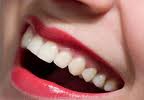 Though your teeth are not bones, both are made of similar materials like calcium, phosphorus, and other minerals. As such, when the health of your bones are in question, your teeth can reflect your bone health by the changes it can cause in your teeth. Here’s how.
Though your teeth are not bones, both are made of similar materials like calcium, phosphorus, and other minerals. As such, when the health of your bones are in question, your teeth can reflect your bone health by the changes it can cause in your teeth. Here’s how.
What Your Teeth Say About Your Bones
You may be surprised to learn that your bones are not the hardest thing in your body, your teeth are. Teeth contain collagen, the same protein that allows your bones to be flexible. However, your teeth don’t have this flexible quality because they contain a substance called dentin that gives them their characteristic hardness. They’re also covered with enamel – that hard, white material you clean everyday with your toothbrush.
In addition, bones are capable of regenerating themselves where teeth are not. When a bone breaks, it regenerates new bone material which heals the fracture. When teeth break, they must be extracted or a crown placed on them to make them whole again.
Even though bones and teeth have some differences in their structure and qualities, if bones become osteoporotic, the health of your teeth may be the first indication of that. In fact, your dentist may be the first one to identify that you may have osteoporosis. Why?
Other than fractures, osteoporosis can be a “silent” disease with little actual bone symptoms. It can, however, cause loss of density in your jawbones that results in tooth loss. Though both men and women over the age of 50 can be at risk for osteoporosis and fracture, women in particular seem to suffer more tooth loss from bone density loss.
To complicate things even more, if you have already been diagnosed with osteoporosis, or are undergoing cancer treatments, and are on bisphosphonate medications, you are also at risk for developing ONJ – osteonecrosis of the jaw. Osteonecrosis means, literally, dead bone. It is most often found during routine dental exams, or after tooth extraction, or from dentures rubbing against the skin of your mouth. Exposed necrotic bone may be seen which can be very painful to the touch and can take a while healing.
Research dating back to 2004 has linked drugs used to treat osteoporosis – bisphosphonates – to ONJ as a rare complication of their use. These include popularly advertised drugs like Boniva, Fosamax, and others. If you have started on bisphosphonates, do inform your dentist of this so he can monitor your jawbone health as well. Loosening teeth may be a sign that these drugs are adversely affecting your jawbone.
What Can You Do To Protect Both your Bones and Teeth?
Both bones and teeth are formed, and stay healthy, from the correct levels of calcium and other minerals in your body. Paying good attention to the following recommendations are helpful in maintaining both good bone density and jaw/teeth health:
1. Optimal calcium and Vitamin D levels. Many Americans are deficient in Vitamin D. To find out if you are, your doctor can run a simple blood test which can identify this. Without Vitamin D, calcium is not absorbed in your bones, or teeth, correctly and the health of both can suffer because of it. 1-2000 IU Vitamin D is a good fall/winter level, while less may be taken during spring/summer if you spend at least 15 minutes in high noon sun every day. Calcium may be gotten from dairy products, many vegetables, non-dairy almond or soy milks, and/or supplements, in divided doses of 300 mg each. Try to balance your food calcium with supplemental calcium, getting no more than 1,200 mg a day from combined sources.
2. Regular dental care/exams. Everyone should see their dentist twice a year for cleanings, or more often if you build up plaque more than most people. Be sure to have any ill-fitting dentures fixed so that they do not rub on sensitive mouth tissues and cause infections which may impact the bone. Tell your dentist about any bone pain in your jaw you may have. Observe good dental hygiene like flossing, brushing teeth at least twice a day (replace toothbrush every 3-4 months), and using antibacterial mouth rinses if necessary.
3. Do bone-building exercise. To prevent osteoporosis, doing bone-building type exercise everyday (like running, playing basketball, soccer, rebounding, walking on pavement) for at least 30 minutes. Strength training with weights, 3 times a week, can also help build bone by building stronger muscles.
Bone density and tooth loss are concerns of people over the age of 50 with tooth loss affecting 1 in 3 adults over age 65. Though osteoporosis of your bones may only identify itself with a fracture, paying close attention to the health of your teeth may tell you earlier that your bone health needs some attention.
Stay Well,
Mark Bromson, M.D.
Natural Health News
Why Are Teeth Not Considered Bones? http://www.lifeslittlemysteries.com/1225-why-are-teeth-not-considered-bones.html
What is Osteonecrosis of the Jaw? http://www.oif.org/site/DocServer/Osteonecrosis_of_the_Jaw.pdf
Keeping Your Bones and Teeth Strong For Life, http://www.health.ny.gov/diseases/conditions/osteoporosis/bones_and_teeth_strong_for_life.htm
photo credit: aussieweb.com.au
